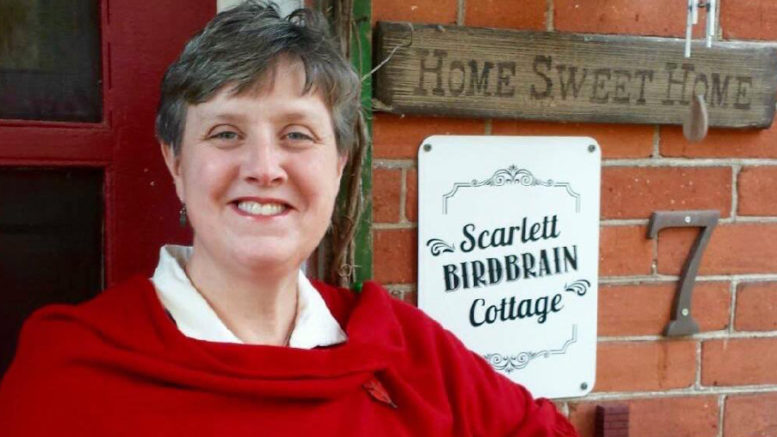Laurie Snider
Notes from the Nest
Around our home I’ve earned a nickname as ‘The Midnight Gardener.’ At various times over the years it’s been used with affection and at other times with a trace of animus. It depended on the present mood of my cohorts and any other evening plans they may have had, which may have included flaking out in front of the television, rather than lugging cumbersome flag-stones onto my newly formed path. It’s not an uncommon site to see me standing in my yard with a rake, shovel or wheelbarrow spreading dirt, piling leaves or planting seedlings as the barely visible, final flickers of orange and purple daylight fade below the horizon.
And even then I’m not opposed to using a little artificial light to finish up the job, sweeping paths or scooping debris into yard bags before calling it an evening. It isn’t actually midnight but the twinkling stars and friendly face of the man in the moon, shining brightly overhead, give a definite nod to the nocturnal portion of the day. When referring to chronotypes-the scientific name for your preferred waking and sleeping schedule-I most definitely fall into the night owl category. That is, into that aberrant group of individuals who prefer to retire much later at night and then rise later in the morning. This is opposed to our direct opposites, those bright-eyed and bushy-tailed early birds or larks, who awaken as the first hints of sunshine begin to glint above the border between night and day with broad, beaming smiles and an abundance of energy. Night owls may need protective eye gear to shade themselves from the flashy brilliance radiating from the glittering gleaming grins of any larks in their vicinity all peppy, perky and prancing about. It turns out which ever group you happen to fall into is determined by biological and genetic forces in addition to lifestyle, mood and how you think or sleep. Intriguingly, there are benefits to both. Early birds have been lauded for eons as the preference, after all they get the worm. Whoever said that, must have forgotten to take into account that owls don’t eat worms. They eat rodents and are quite excellent at catching them after dark! Researchers have discovered night owls are more intelligent, have greater mental stamina, are more creative and intuitive and are generally more productive, albeit at odd hours. Larks do better in school and get better grades, probably because they operate during daytime hours. They’re also known to be go-getters, persistent and less likely to experience fatigue, frustration and difficulties and overall, they’re healthier.
Early birds do need their sleep though and tend to fade as their energy wanes throughout the day. By evening they may be cursing their night owl companions as they become more alert and ready to go, perhaps even suggesting lugging a few more hefty flat rocks onto the new path or various other midnight gardening tasks. A particular drawback for night owls though, is social jet lag. This is when your biological needs, waking up late and going to bed late, don’t match up with those of normal society. I can certainly attest to this as I have great difficulty getting going as soon as my feet hit the floor. I prefer to schedule appointments and plans for the afternoon or evening, once I’ve come to and am more spirited and livelier. I credit my preferred nighttime disposition with discovering and observing a host of creatures that also enjoy hanging out under a moonlit landscape. We’ve discovered a fascinating assortment of bugs, beetles, moths, owls and racoons; mothers and babies, as they’ve explored trees, shrubs, trellis and gardens in our yard. Probably the most captivating visitors have been the flying squirrels. It was while I was outside during one of my evening horticulture engagements that I met my first one face-to-face, munching peanuts at the feeder. I found myself wondering why a red squirrel would be out after dark when I suddenly realized it was actually a fuzzy, aerial acrobat instead. Since then many pleasant sultry, summer evenings have been spent, glimpsing them zooming and flitting around the treetops and enjoying pro-offered snacks of nuts and seeds. It looks like so much fun!
Certainly watching the sunrise enjoying a quiet cup of coffee before the busyness of the day takes hold and indeed watching those first early birds as they peck at the ground for a plump, juicy worm are also gifts to behold. I’m grateful on the occasions when they occur but for me, they are more of a rarity. My tendency is much more toward Robert Louis Stevenson who said, “there is a romance about all those who are abroad in the black hours.” Perfect prose for a midnight gardener.

